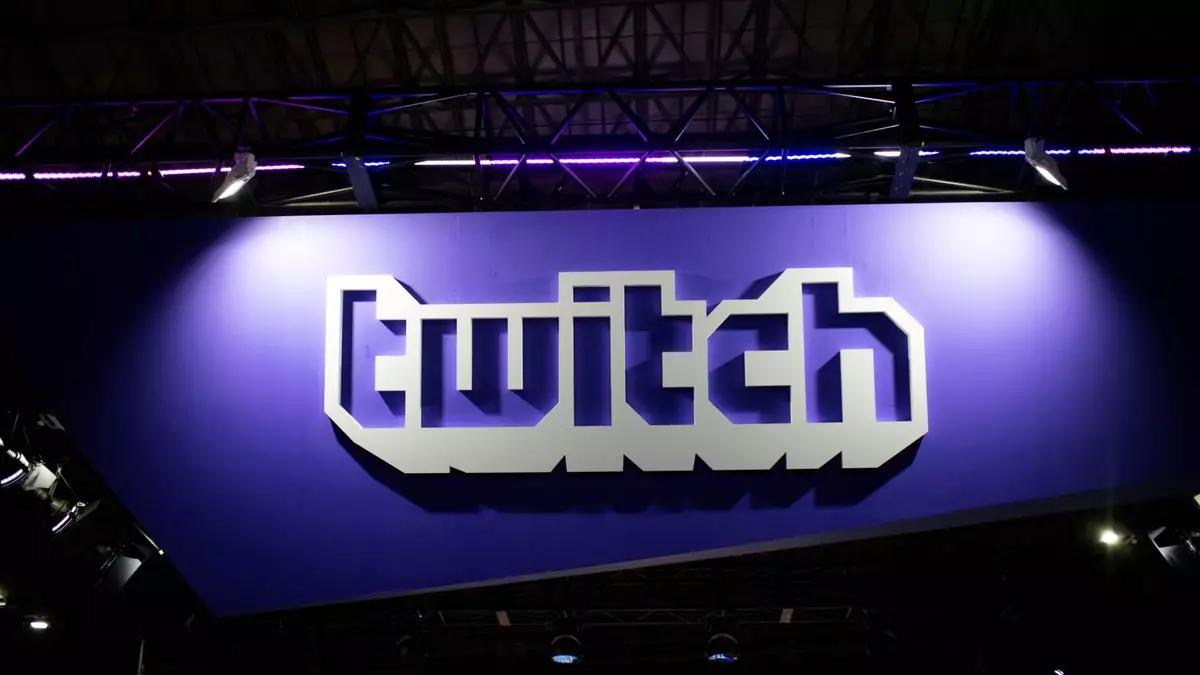In an intriguing shift in its operational landscape, Twitch has chosen to introduce a new content classification category encompassing “politics and sensitive social issues.” This initiative necessitates streamers to tag their broadcasts when engaging in discussions relating to contentious topics like elections, civil rights, and military conflicts. The primary objective is to safeguard viewers, especially younger demographics, from inadvertently encountering content that might be deemed offensive or inappropriate. The addition of these classification labels serves as a response to the burgeoning complexity of online discussions where sensitive themes increasingly permeate various forms of entertainment.
Twitch’s decision reflects an evolving digital communication environment where platforms are grappling with balancing freedom of expression against the potential for disseminating harmful content. Historically, Twitch has mandated content labels for streams illustrating violence, drug use, and graphic presentations; the inclusion of political discourse now emphasizes a recognition that such discussions can elicit diverse, often polarized reactions from audiences.
The introduction of this classification scheme comes on the heels of considerable backlash faced by Twitch, particularly following several incidents that raised questions regarding the platform’s policy on hate speech and racism. A widely publicized suspension of popular streamer Zack “Asmongold” Hoyt for a racist outburst has brought the platform’s governance under scrutiny. Following this, the banning of Arab streamers for their commentary during a TwitchCon panel highlighted the intricate landscape of content moderation Twitch must navigate. As the discourse surrounding Gaza and broader geopolitical issues intensified, Twitch’s oversight faced accusations of negligence, alongside allegations of both antisemitism and Islamophobia.
In a bid to address mounting concerns, Twitch’s CEO Dan Clancy reiterated the platform’s zero-tolerance stance towards any form of hate and harassment, asserting the organization’s commitment to creating a safe space for diverse voices. However, the examination of Twitch’s recent approaches reveals a problematic duality—it strives to serve as an inclusive platform while concurrently contending with backlash from a plethora of community factions. Clancy’s statements reflect an acknowledgment of the problematic intersections where various communities feel marginalized or targeted.
With new guidelines comes a host of complexities that are as controversial as they are necessary. The classification labels intended for streams involving political dialogues are a case in point. While Twitch has delineated examples of what may require labeling—discussions about government procedures, protests, and civil unrest—the guidelines raise uncertainties about what constitutes educational versus advocacy-driven content. The vagueness surrounding these definitions can lead to disparities in interpretation, making it possible for crucial conversations to be silenced under vague categorizations.
Creators are now left grappling with the implications of their streaming content. For example, would a neutral discussion covering the rise of extremism be classified as sensitive content? The ambiguity surrounding such designation can lead to chilling effects where streamers may exercise caution in discussing vital social issues, fearing repercussions or perceived violations of the newly installed guidelines.
As these guidelines roll out, there has been an overwhelmingly negative response among content creators and viewers alike. Strikingly, many are voicing concerns that Twitch’s attempt to classify content stems from a reactive policy rather than a proactive approach aimed at fostering constructive engagement. The anxiety stretches beyond mere classification; it encompasses fears about revenue loss as advertisers often steer clear of streams with warnings attached, regardless of context.
Many creators emphasize their need to engage in conversations about their lives authentically, sharing experiences that intersect with sensitive topics. CiCi—a streamer and reproductive rights advocate—exemplified this sentiment, asserting her right to discuss her healthcare experiences without feeling burdened by additional labeling. The fear of censorship through categorical designation brings forth the essential question: where does the line reside between moderation and suppression of vital discourse?
The introduction of the “politics and sensitive social issues” classification by Twitch appears to be a necessary, albeit hasty, reaction to complex societal challenges, particularly its recent confrontations regarding racism and victimization. While attempting to create safer digital spaces for viewers, it has inadvertently initiated larger conversations surrounding content moderation, speech, and community inclusion.
Going forward, Twitch faces the challenge of refining these guidelines to ensure they provide clarity rather than confusion, promoting discourse rather than stifling it. As the platform continues to develop its identity within the digital realm, a committed approach toward transparency and community dialogue may prove crucial in healing rifts and affirming Twitch’s role as a space for diverse expression. In an era where digital voice is increasingly paramount, the stakes for navigating issues of sensitivity and political discourse could not be higher.

